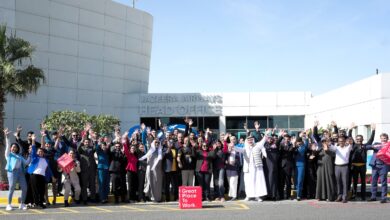Structural and systemic reforms await urgent redressal

The Times Kuwait Report
Guided by the sagacious and insightful directives of His Highness the Amir Sheikh Mishal Al-Ahmad Al-Jaber Al-Sabah, the new government headed by His Highness the Prime Minister Sheikh Ahmad Al-Abdullah Al-Ahmad A-Sabah, has been instituting several recalibrations aimed at heralding an economic, social, and political renaissance in the country.
Since taking oath of office in May this year, the cabinet has also been assiduously reviewing all aspects of the economy and issuing a spate of decisions focused on taking the country along a track of sustainable development and progress. In addition, the government has initiated a series of policies and processes aimed at strengthening effective governance, enhancing accountability, and combating corruption in all its dimensions.
With its commitment to development and long-term welfare of citizens the government has also signaled a willingness to undertake several radical structural and systemic reforms and policy changes that previous administrations have tended to side-step. Previous attempts to introduce crucial economic, social and administrative reforms were hindered by various exigencies, including legislative roadblocks and political upheavals.
Political instability over the years has been a major hurdle that has prevented Kuwait from mirroring the developments witnessed in other Gulf Cooperation Council (GCC) states. While other GCC states have surged ahead in developing their non-oil sector. Kuwait’s economy still remains deeply anchored on oil income, which currently accounts for approximately 90 percent of exports and government revenues, as well as around 50 percent of the gross domestic product.
DIversification of revenue sources and promotion of a vibrant non-oil sector are essential if Kuwait is to escape the economic stranglehold that global oil price fluctuations wield on the country. But this is no easy task; the government’s attempts to prioritize economic and energy diversification face several underlying structural and socio-economic challenges.
Among these tribulations is the long-simmering issue of naturalization that has remained unresolved for decades. Other structural imbalances include a skewed demography, where two-in-three of the population is a foreigner; a gender disparity brought on by structural marginalization of women in politics and in the labor market; as well as a lack of transparency and persistent corruption in public life that corrodes trust and hampers good governance.
Additionally, an educational system that has struggled to catch up with the rapidly changing world of teaching and learning, a housing crisis that despite the country’s wealth has denied a roof of their own to many citizens, and more recently, a power grid that cannot cope with rising demand, are structural issues that have persistently stymied Kuwait’s attempts to promote the non-oil sector, as well as impeded the country’s sustainable development and equitable social progress.
Adding to Kuwait’s economic woes, more than three-quarters of the Kuwaiti working population are employed in public-sector entities, irrespective of their qualifications, skills, or the need for additional employees. Nearly 80 percent of the budget expenditure is currently outlayed as payroll for public sector employees, including for their salaries, benefits, public transfer payments and pensions. Additionally, the budget expends funds to subsidize basic utilities and support free healthcare, education, and housing initiatives for citizens.
Subsidies and other welfare measures over the years have spawned a sense of entitlement among many citizens, and also led to an unsustainable consumption and lifestyle pattern. Unbridled consumption has strained the state’s ability to continue providing power and water supplies to meet the needs of people, as well as cater to demands of a rising population base and increasing industrial growth.
Despite the structural and systemic challenges facing Kuwait, the country’s potential revival under the current government has been acknowledged by local analysts and international agencies. In the first week of June, international rating agency, Standard & Poor’s, confirmed Kuwait’s sovereign credit rating at A+ with a stable future outlook. Explaining its latest rating, the agency said it expected Kuwait’s real GDP to grow by 2.4 percent on average during the years 2025-2027, despite a contraction of 2.3 percent in 2024.
The agency also highlighted the country’s large financial and external balances, which are expected to remain strong in the 2024-2027 period. Moreover, external financial assets in its sovereign wealth fund, estimated at about 418 percent of the gross domestic product (GDP) in 2024, and expected to reach 447 percent of GDP during the 2024-27 period, could mitigate Kuwait’s economic risks associated with its heavy dependence on oil and potential fluctuations on global oil markets.
However, Standard & Poor’s pointed out that with an economy overly dependent on the oil sector and impacted by price fluctuations in the oil market, Kuwait has registered deficit budgets in 8 out of the past 10 annual budgets. Unless addressed as a priority, the humongous budgetary allocations for the wage and salary bill will lead to the budget continuing to face deficits for fiscal years 2023/24 – 2027/28.
The agency cautioned that without economic diversification measures, Kuwait’s credit ratings could be negatively impacted, especially if prolonged dip in oil prices lead to a significant increase in financial imbalances. Other factors that could result in a downward rating include a continued reluctance to introduce deep structural and financial reforms, and in the absence of comprehensive financing arrangements, such as a debt bill to meet deficits in the general budget.
In a further endorsement of the new government, Focus-Economics (FE), a leading global provider of macroeconomic intelligence, noted that the absence of a parliament could expedite long pending legislation in various areas. It added that while the government’s immediate focus will likely be to approve the budget for fiscal year 2024-25, the cabinet is also expected to expedite the approval of a public debt law this year.
The public debt bill, which has been held up in parliament since October 2017, when the previous debt bill expired, would allow the government to issue more public debt instruments to borrow from international debt markets. In the past, vehement opposition to the bill from lawmakers had led to the state treasury nearly running dry during occasions of extended low oil prices. A debt law would provide the funds to finance investment and to support economic activity in periods of financial crises.
The analysis by FE also expects the new government to drive economic diversification measures by promoting and energizing non-oil activities, engaging with the private sector, and improving the business and investment environment to make it more attractive to international investors. Kuwait’s non-oil growth is currently relatively muted, with the sector expected to grow by 2.3 percent in 2024. Meanwhile, in neighboring countries such as Saudi Arabia and the UAE it is expected to be around 4.8 percent and 5.1 percent respectively in 2024.
The political stability and economic revival being witnessed in Kuwait,has also been warmly welcomed and broadly supported by different sections of Kuwaiti society. The renaissance has rekindled hopes among many that the country has finally shed its label as a laggard and outlier in the region, and is headed to regain its once potent prowess in initiating progressive reforms, social welfare schemes and development projects.
Considering the convergence of these positive factors, analysts believe the government now has a window of opportunity to drive through necessary reforms and policy changes that have eluded implementation for far too long. Prevailing positivity also provides a slot to implement a comprehensive structural reform package; introduce meaningful economic diversification measures; encourage greater private sector involvement in the economy; and enhance skill sets and productivity of the national workforce, so as to drive Kuwait towards a brighter sustainable future.












